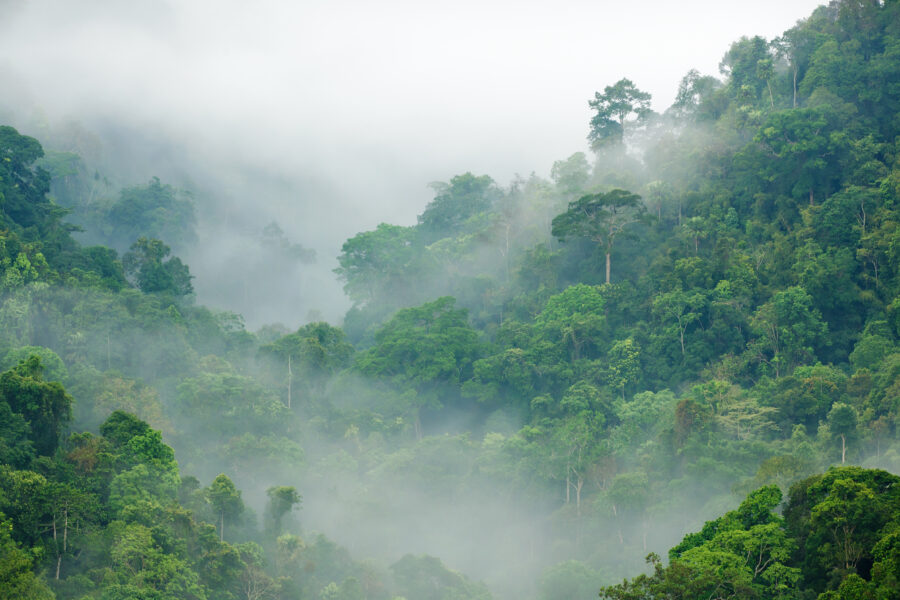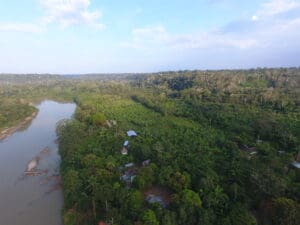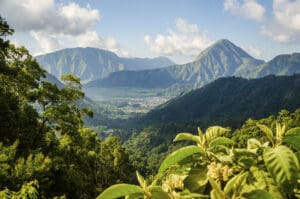This blog post is part of a broader commentary on ART-TREES, Jurisdictional REDD+ and Nature-Based Solutions. Read the full commentary here.
Nature-Based Solutions (NBS) are broadly defined as solutions to societal challenges that involve working with nature. Specifically, they imply a wide range of actions to protect, restore and sustainably manage both natural and modified landscapes to achieve climate, biodiversity, and sustainable development goals.
When anchored in culturally appropriate solutions and the self-determined priorities of local peoples, nature-based actions have the potential to strengthen synergies, reduce trade-offs, transform human-environment interactions, and effectively drive system-wide transformation.
Unfortunately, such strategies are increasingly associated with limiting and potentially harmful actions and investments. Chief among these are compensatory actions conducted in one part of the world to redeem harms done by others elsewhere. One example of this includes the growing demand for climate and biodiversity offsets that fail to consider the impacts of greenhouse gas emissions.
In the absence of robust policy interventions to curb source emissions, decarbonize supply chains, and enhance progress towards human-rights based approaches, the magnitude of land needed to mitigate largely unsustainable global economic systems will inevitably exacerbate current inequalities and injustices.
So, what’s at stake?
Together, Indigenous Peoples, local communities, and Afro-Descendant Peoples hold customary rights to over half of the world’s lands, but legally own just 10 percent of this area. This leaves them – and the areas they steward – vulnerable to the growing demand for land, natural resources, and the pursuit of NBS.
Yet, evidence from the last decade shows that securing their land rights – while supporting their self-determined priorities and governance institutions – represents by far the most effective, equitable, and scalable solutions at our disposal.
Forests that are legally owned or governed by communities exhibit lower rates of deforestation; store more carbon; are better protected; and generate more benefits for more people than forestlands managed by either private or public entities.
Unfortunately, rural peoples everywhere face increasing challenges
Indigenous Peoples, local communities, and Afro-Descendent Peoples – especially the women amongst them – bear the brunt of violence and criminalization perpetrated against environmental and land rights defenders. Under the guise of pandemic recovery plans, communities now face increasing risk of rollbacks, diminishing civic space, and growing threats to their livelihoods and security.
According to a recent study by Rights and Resources Initiative (RRI) and the Campaign for Nature, between 1.6 and 1.8 billion people currently live in important biodiversity areas and could be affected by plans to protect 30 percent of the planet by 2030, potentially exposing them to human rights abuses and forced displacements that continue to plague conservation efforts in many parts of the world. And yet, recognizing their tenure rights would cost less than 1 percent of the cost of resettlement, in addition to generating broader livelihood and conservation benefits.
Conditions for the realization of community rights in the context of emission reductions from deforestation and forest degradation initiatives are not substantially better. A 2021 analysis of 31 REDD+ countries carried out by RRI, with researchers from McGill University, shows that:
-
- Only 3 countries legally recognize community rights to emission reduction credits, and 3 others tie such rights to land or forest ownership
- Only half of the total area held by communities in the reviewed countries is legally recognized, placing their land and carbon rights at risk of capture by others
- Only 5 of the reviewed countries have developed benefit-sharing mechanisms, and only 2 have operational feedback grievance redress mechanisms
More broadly, community land rights have simply not been a priority of REDD+ countries or international climate financing institutions. As noted in a recent study by Rainforest Foundation Norway, less than 1 percent of total climate financing from the past decade has gone to supporting initiatives by Indigenous Peoples and local communities, and only a fraction of this was dedicated to securing their collective land and resource rights.
Amidst these various challenges, there remains credible ground for optimism
-
- The science is clear: To achieve global climate and biodiversity goals, we must first protect the sovereignty and dignity of Indigenous Peoples and local communities over their lands and the knowledge they hold;
- Most tropical forested countries have legislative tools and instruments that could facilitate the legal recognition of community-based tenure rights;
- There is more support for rights-based climate, conservation, and sustainable development action, marked by increasing donor coordination and engagement;
- Many influential companies and investors behind the demand for NBS are aware of the risks posed by insecure land rights and are eager to work with civil society and rightsholders;
- We have a robust Land Rights Standard to support rights-based approaches in the context of climate, biodiversity, and sustainable development actions and investments;
- Rightsholders are increasingly connected, coordinated, and mobilized to effectively engage national and international constituencies, advance their self-determined priorities, and hold public and private actors and institutions accountable for their actions.
Together, these elements provide reason for hope and the advancement of rights-based natural climate and biodiversity solutions.






